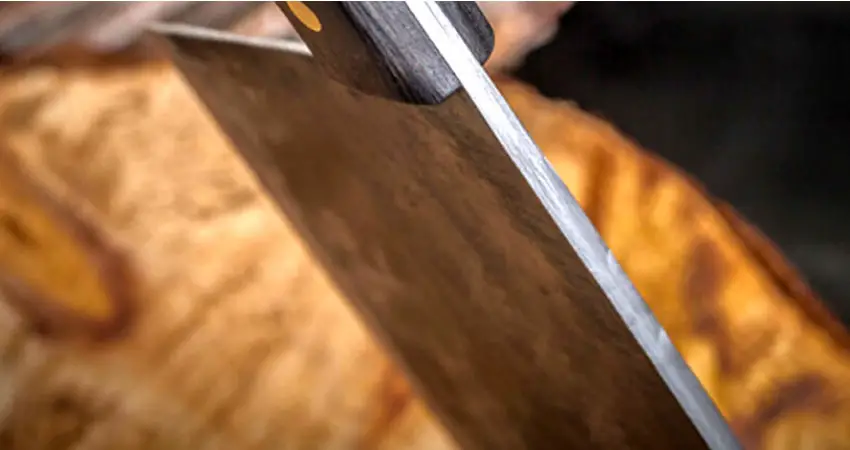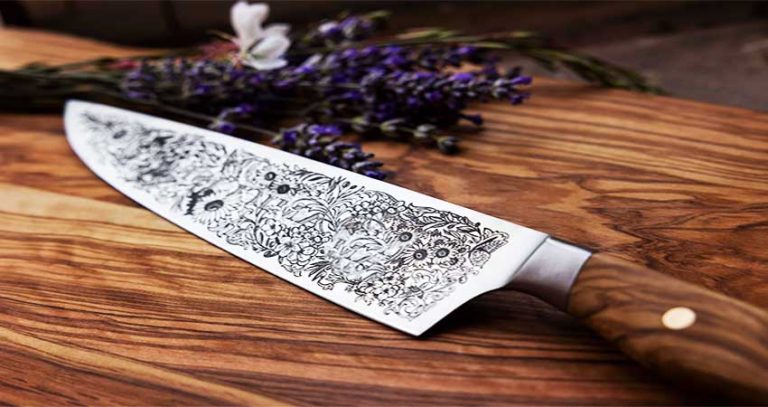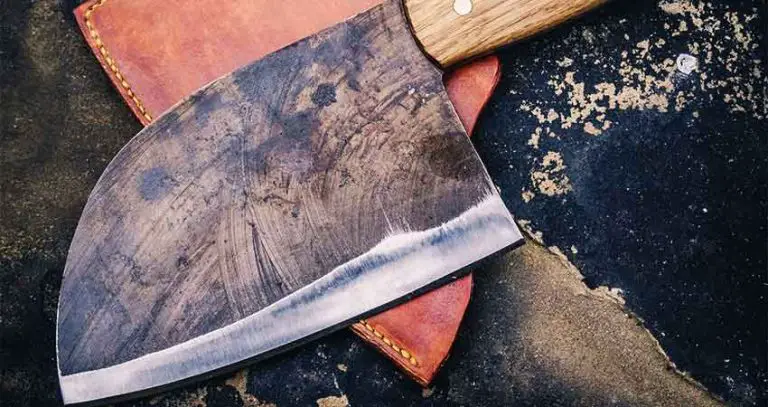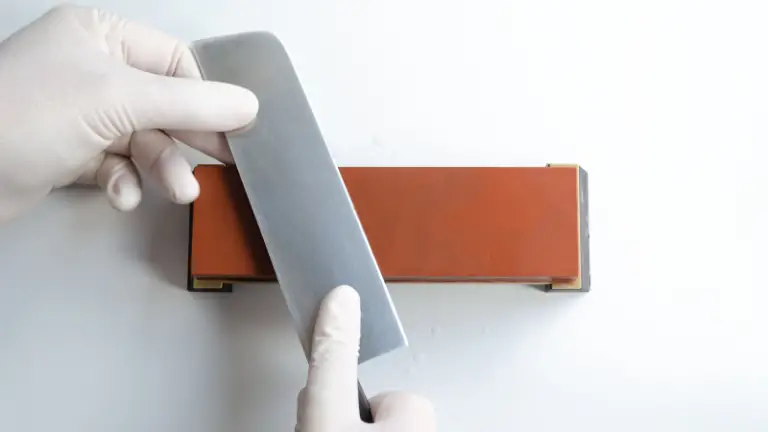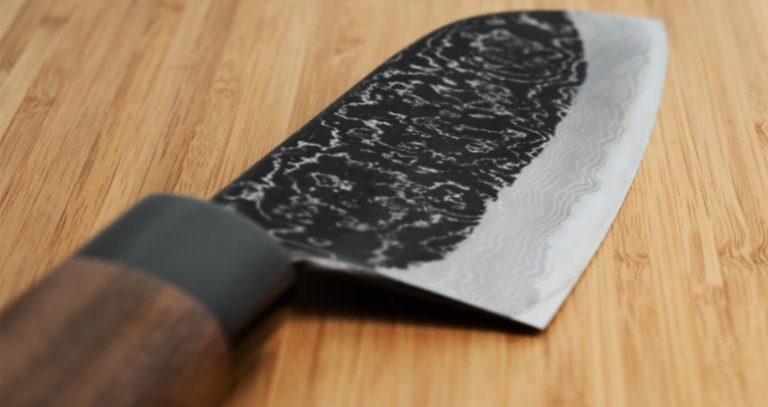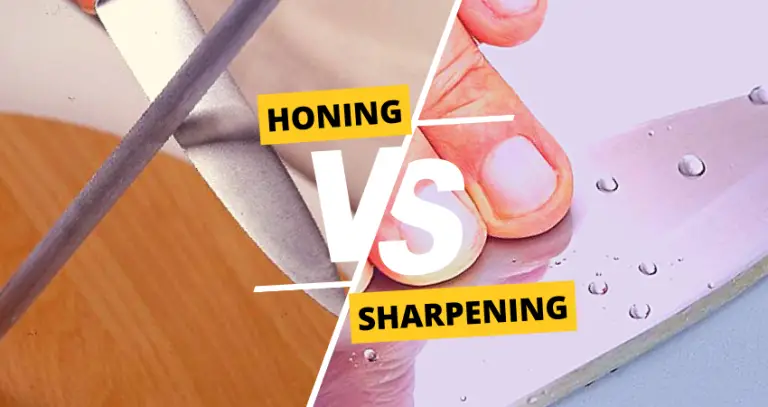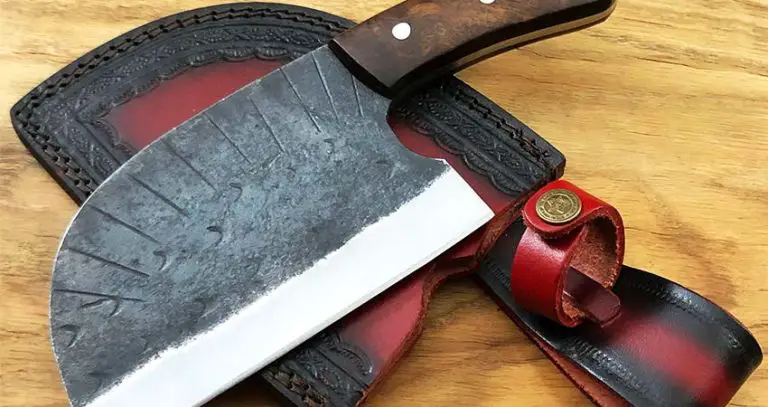How to Sharpen a Serbian Chef Knife?
Serbian chef knives are well-known for their heavyweight, balanced cutting action with extremely tough and sharp blades. These knives are made of high carbon steel, which is the main reason of their hardness and edge retention.
But still, a Serbian knife can get dull over time. You need to resharpen the knife blade periodically to extend its service life. Honing the knife blade is also important during regular use.
We will cover everything on how to sharpen a Serbian chef knife in this discussion. Give it an attentive read to find the right ways of sharpening your favorite knife.
What Is a Serbian Chef Knife?
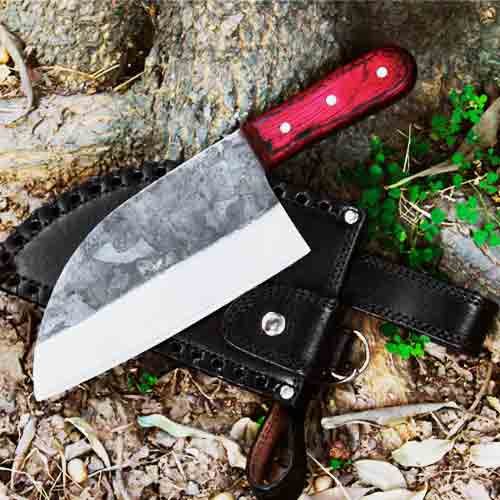
A Serbian chef knife is a multipurpose kitchen knife that is mostly used for chopping, dicing, slicing, etc. This knife’s heavy and large blade is suitable for handling thick meat and fish.
Serbian knives are originated in Serbia, France, and Germany. Due to their high hardness and edge retention, they are one of the most common tools in any chef’s arsenal. But you need to take regular care of the knife to keep it in tiptop condition.
When Should You Sharpen a Serbian Chef Knife?
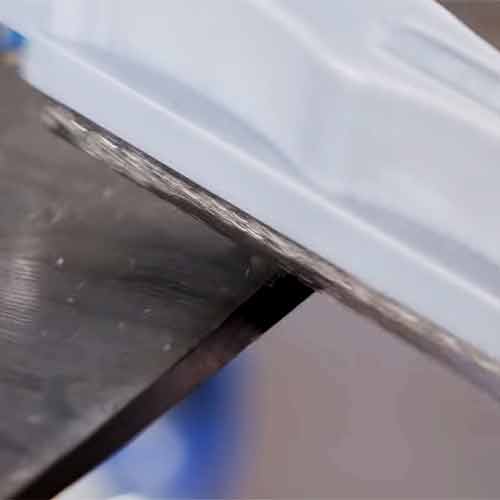
Serbian chef knives are so sharp that they can make glass-thin slices of tomato or cut a sheet of paper into pieces without bruising it. When the knife fails to make such cuts, it means the knife blade is dull, and you need to resharpen it as quickly as possible.
You can run a few simple tests to determine whether you need to sharpen the knife.
- Try cutting a piece of paper in half. If the paper gets bruised, your knife blade is too dull.
- Slice a tomato. If your knife can’t slice through the tomato in one go or needs much pressure, it may be dull.
- If you feel resistance from an object while cutting, your knife blade may be dull. Consider sharpening it.
What Is A Sharpening Steel? How to Use It?
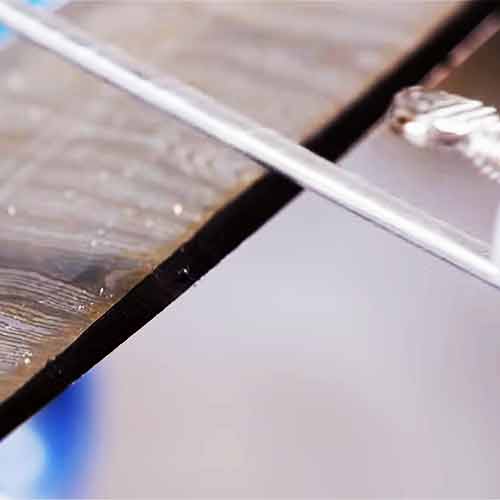
A sharpening steel is commonly used to straighten the edges of a Serbian chef knife or other knives. Micro-tearing happens along the edges while we use the knife. Using sharpening steel restores the edges and maintains the sharpness for a long time.
You can use a sharpening rod before or amid using the knife. These rods are often coated with ceramic or diamond. Use a sharpening rod in the following way to maintain the sharpness of your knife blade.
- Hold the sharpening steel upside down on the cutting board. Hold the knife with the other hand at a maximum angle of 15 degrees with the sharpening rod.
- Drag the knife towards you along the sharpening steel. After sharpening one side, repeat the process for the other side.
What Is a Whetstone and How to Use It?
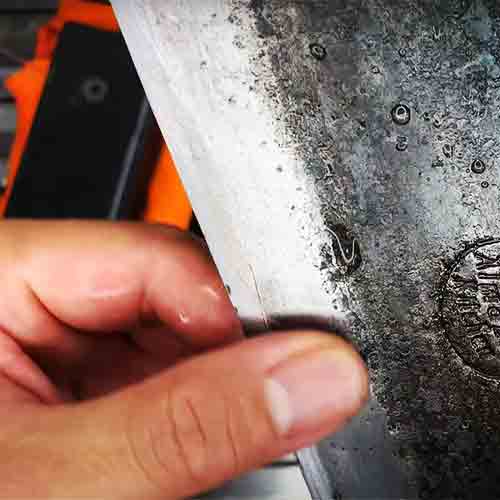
Using a whetstone is probably the most suitable method for sharpening a Serbian chef knife. You will find different grits of whetstones out there. Coarse whetstones are used to sharpen completely blunt knives.
If your knife is too dull, you can start with low-grit whetstones, something like 100-120 grit. But if your knife blade has a bit of sharpness remaining, you can go for 1000 grit at the beginning and finish with 3000 or more grits.
Follow These Simple Steps to Sharpen Your Serbian Chef Knife Using a Whetstone
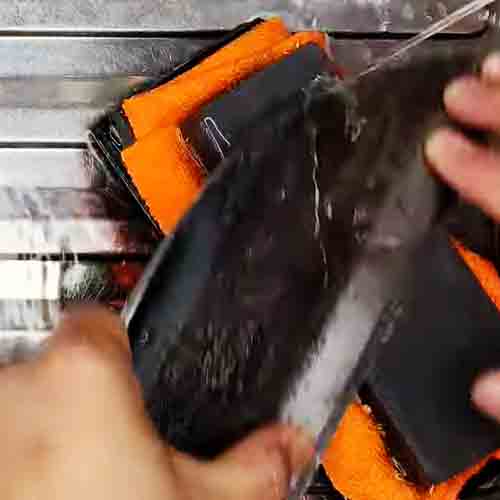
Soak the Whetstone
A whetstone is also known as a water stone because it needs to be submerged in water for several minutes before sharpening your knife blade. Soaking the stone in water reduces friction when you sharpen the knife.
Use a Guide Clip
This step is optional. Guide clips ensure the knife maintains a steady angle with the whetstone. If you have steady hands, you can skip this step.
Place the Stone on a Flat Surface
Place the whetstone on your countertop or any other flat surface to start working. Using a double-sided stone can be beneficial. You can place a damp paper towel or cloth beneath the stone so that it doesn’t slip.
Hold the Knife at an Angle
Hold the knife against the stone and slide it along the length of the stone diagonally. Use back and forth movement to sharpen the edge of the blade.
Test the Sharpness
After sliding the knife about 20 times, check the sharpness of the blade. Don’t ever try to test the edge with your fingers. Serbian chef knives are razor-sharp, so you can cut your fingers into pieces.
Repeat the Process
If you find the sharpness of one side satisfactory, repeat the same process for the other side. Ensure you are putting the same amount of pressure on both sides so that the sides lose approximately the same amount of metal.
Wash the Knife and Dry
After finishing the knife on fine-grit stones, clean it thoroughly to get rid of any debris. Use a paper towel or clean, dry cloth to dry the knife completely.
Tips to Maintain the Sharpness of a Serbian Chef Knife
You can maintain the sharpness of Serbian chef knives for a longer period if you follow these pro tips.
- Use the right cutting board for these knives. Wooden or plastic cutting boards are good for Serbian knives. Never use a marble or glass cutting board.
- Over-sharpening the knife blade is one of the most common mistakes. You can use sharpening steel frequently. But don’t use a whetstone every time.
- Don’t soak the knife in the water while cleaning. It is better to wipe the knife blade with a clean cloth or non-abrasive sponge.
- Use a knife sheath or block for storage. Don’t put the knife into the drawer with other metal utensils.
- Honing the knife blade regularly can be very effective. It straightens the torn edges of the blade.
Conclusion
Though Serbian chef knives don’t need a lot of sharpening, you should do the process correctly whenever required. One wrong move, and you can damage the precious knife blade.
If the knife isn’t sharp enough, it can be hazardous in the kitchen. Sharpening the knife in the right way will elongate its service life and ensure you get cleaner cuts every time.
We hope this discussion helped you learn how to sharpen a Serbian chef knife. Apply these tips to maintain the sharpness of your knife blade. And continue to enjoy the ultimate comfort and convenience of using these knives.

